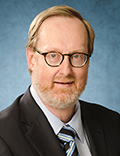Page Content
 Question: I understand there is an option for some central office staff to opt out of active membership in the Alberta Teachers’ Association. Is that the case?
Question: I understand there is an option for some central office staff to opt out of active membership in the Alberta Teachers’ Association. Is that the case?
Answer: Yes. In 2004, the Teaching Profession Act was amended to allow certain central office teachers to opt out of active membership. But that’s not the whole story.
For decades, the superintendent of schools has not been allowed to be an active member of the Association. If the board names a chief deputy superintendent, that person is also not allowed to be an active member. The superintendent and chief deputy superintendent can certainly be associate members, but the membership is voluntary. These provisions of the Teaching Profession Act go back to an era when the superintendent was not a school board employee — the superintendent was a member of Department of Education staff assigned to the school board.
The 2004 amendment applies to central office teachers other than the superintendent (or the chief deputy, if there is one). When identified by a school board to qualify for an election of membership status, central office teachers are offered a once-in-a-career opportunity to elect active or associate membership or to choose to be a nonmember. The election is available to teachers who are newly appointed to a central office position that includes no teaching or school administration duties.
In accordance with the act, the board has 60 days from appointment to identify a central office teacher for an election of membership status. Upon identification, the central office teacher has 60 days to advise her board and the Association of her election. There is an appeal process available to the Association and the teacher if there is a disagreement about whether the central office teacher is properly eligible for an election of membership (that is, if her duties qualify and do not include teaching and school administration duties).
Whatever election the central office teacher makes cannot be amended by the teacher, the board or the Association without the permission of the minister of education. A teacher who retains active membership remains an active member even if the central office position changes (a superintendent or chief deputy cannot be an active member, however). A teacher who chooses associate membership remains an associate member for the balance of her central office career (that is, she cannot vary her membership without the permission of the minister, so she maintains associate membership status over time).
A teacher who chooses to be a nonmember, assigned to a central office position, cannot rejoin the Association on a future day (except with the permission of the minister). A teacher who does not make an election retains her active membership. A central office teacher who is transferred to duties as a school administrator or classroom teacher is required by law to be an active member no matter what her membership election may have been.
A central office teacher who elects associate or nonmembership cannot be covered by the collective agreement and enters into a personal services contract with the school board. The central office teacher loses the protective and legal support services of the Association and does not have access to the Board of Reference.
It should also be noted that the Association’s Code of Professional Conduct does not apply to associate and nonmembers. Central office teachers who do not maintain the highest order of membership in the Association are not eligible to attend teachers’ conventions, but may sign up for specialist councils and specialist council conferences.
About 80 per cent of central office teachers retain active membership in the Association. Some school boards have chosen not to identify central office teachers for an election of membership. At some boards, all central office teachers are active members. At Edmonton Public, Edmonton Catholic and Calgary Public, virtually all central office teachers are active members. The situation is different in rural boards and many Catholic boards.
Feel free to ask your central office teacher colleagues if they have elected active membership in the Association. Keep in mind that central office teachers who are not active members are not bound by the ATA’s Code of Professional Conduct, including provisions that outline collegial relationships and reporting. ❚
Questions for consideration in this column are welcome. Please address them to Gordon Thomas at Barnett House (gordon.thomas@ata.ab.ca).
